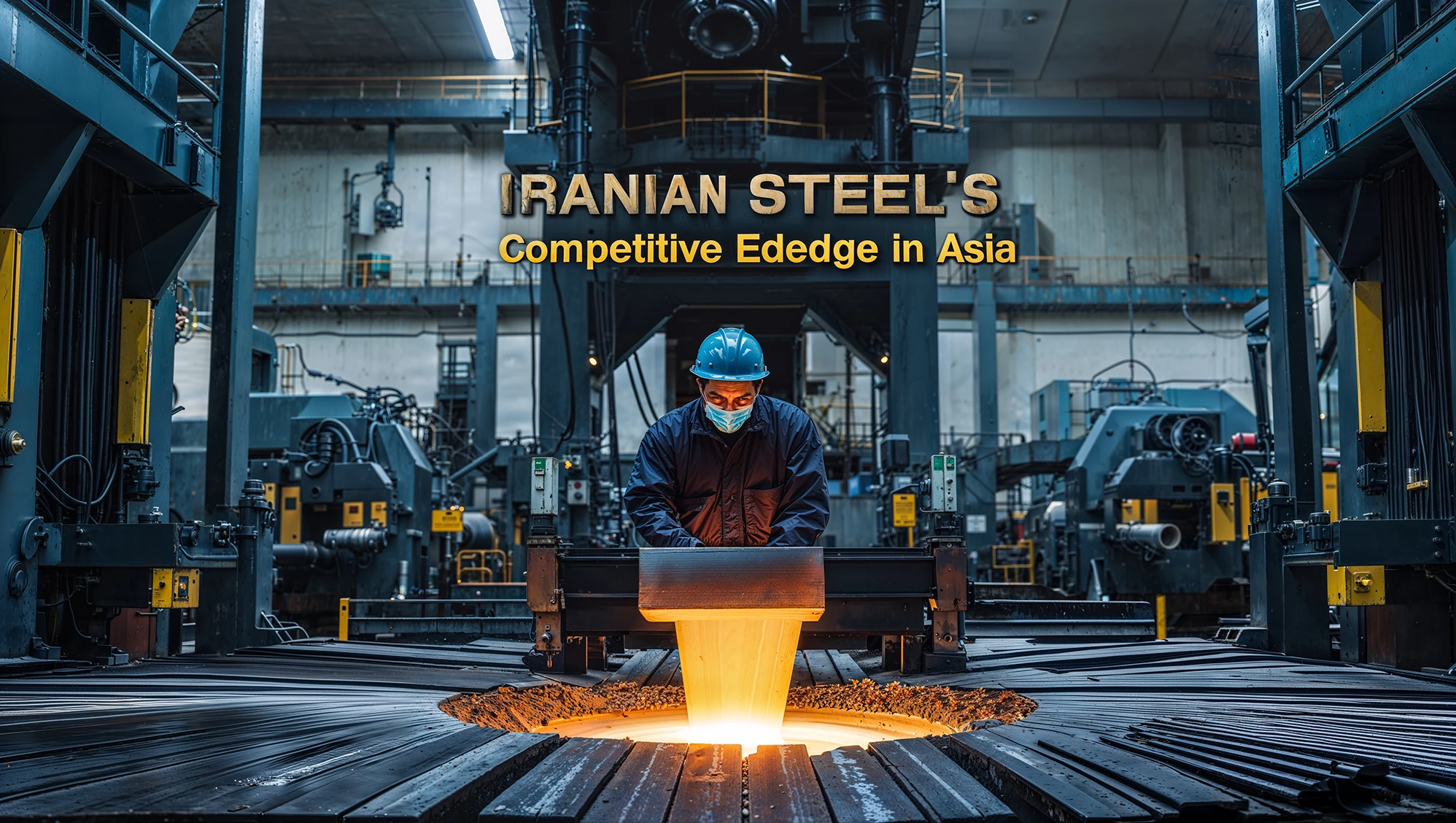In recent years, Iran’s steel industry has emerged as a burgeoning force in the markets of Asia and the Middle East. Despite intense competition from countries such as China, India, Turkey, and South Korea, Iranian steel has carved out a distinct place in both regional and global trade, thanks to its unique advantages. This article explores the key superiorities of Iranian steel compared to its Asian competitors.
-
Access to Unparalleled Raw Materials
Iran possesses the second-largest iron ore reserves in Asia and has access to low-cost energy sources such as gas and electricity, significantly reducing the production costs of steel. While countries like India and China face shortages of gas resources and rising coal prices, Iran leverages its vast gas fields like South Pars to supply energy to its steel mills at rates up to 40% cheaper. This factor renders the final cost of Iranian steel up to 20% more competitive than its rivals.
-
Strategic Geographical Location
Situated as a bridge between the Middle East, Central Asia, and Europe, Iran enjoys easy access to the high-demand markets of Arab countries. The transportation costs of steel from Iran to destinations such as Iraq, the UAE, or Oman are up to 30% lower than those from farther competitors like China or India. Additionally, the presence of modern port infrastructure in Chabahar and Imam Khomeini port facilitates rapid and cost-effective exports.
-
Diverse High-Quality Products
While China is recognized as the world’s largest steel producer, it primarily focuses on basic products with low added value. In contrast, Iran has invested in advanced technologies and expanded its production of high-value-added products such as stainless steel, industrial sheets, and alloy steels. For instance, Mobarakeh Steel of Isfahan now competes directly with Korean and Japanese producers in specialized markets.
-
Economic Diplomacy and Regional Relations
Iran has fostered greater trust in its markets due to its historical and cultural ties with Arab countries. While Turkish steel exports sometimes face restrictions due to political competitions, Iranian steel, relying on long-term contracts and non-dollar payment mechanisms, has solidified its position in Arab markets. This advantage has become more pronounced following the recent improvement in relations with Saudi Arabia.
-
Long-Term Planning and Government Support
Unlike some Asian countries whose steel industry is affected by global market fluctuations, Iran, with plans such as Vision 1405 (targeting the production of 55 million tons of crude steel), has established stability and sustainability in this industry. Support for development projects such as the construction of steel complexes in underprivileged areas not only reduces production costs but also promotes regional development and job creation.
-
Skilled Workforce and Low Costs
Competitive wages in Iran (about 50% lower than Turkey and 30% lower than India), coupled with the presence of experienced engineers and specialists in metallurgy, enhance the productivity of the steel industry. Meanwhile, countries like China are facing challenges of rising wages and a declining young workforce.
Challenges and Solutions for Maintaining Superiority
Although Iran has significant advantages, competitors such as India with its mass production and China with its very low prices pose threats to Iran’s export markets. Key strategies for maintaining superiority include increasing the share of high-tech products in the export basket, improving environmental standards to compete with European standards, and utilizing blockchain and artificial intelligence to optimize the supply chain.
Conclusion: A Bright Future for Iranian Steel
Considering Iran’s inherent advantages in resources, energy, workforce, and geographical location, the country’s steel industry has the potential to become the leading steel hub in Western Asia. Increasing cooperation with Arab countries and investing in international marketing could double Iran’s share in global markets, particularly in steel exports to Arab countries


